
Kód: 01604997
Money - the root of global trade
Autor Katharina John
Seminar paper from the year 2007 in the subject Economics - Monetary theory and policy, printed single-sided, grade: 2,0, Vienna University of Economics and Business , course: Seminar Business English, 47 entries in the bibliograp ... celý popis
- Jazyk:
 Angličtina
Angličtina - Vazba: Brožovaná
- Počet stran: 28
Nakladatelství: Grin Publishing, 2007
- Více informací o knize

Mohlo by se vám také líbit
-

Signs of Crime
764 Kč -

Endurance of Nationalism
1286 Kč -

Noncommutative Localization in Algebra and Topology
2096 Kč -

Biotechnology in Functional Foods and Nutraceuticals
6904 Kč -

Das Alltagsgeschichtenbuch. Bd.1
992 Kč -

Wolkenkinder - Der große Auftritt
291 Kč -

Die Christliche Mystik, Volume 4, Issue 1...
1064 Kč
Dárkový poukaz: Radost zaručena
- Darujte poukaz v libovolné hodnotě a my se postaráme o zbytek.
- Poukaz se vztahuje na celou naši nabídku.
- Elektronický poukaz vytisknete z e-mailu a můžete ihned darovat.
- Platnost poukazu je 12 měsíců od data vystavení.
Více informací o knize Money - the root of global trade
Nákupem získáte 104 bodů
 Anotace knihy
Anotace knihy
Seminar paper from the year 2007 in the subject Economics - Monetary theory and policy, printed single-sided, grade: 2,0, Vienna University of Economics and Business , course: Seminar Business English, 47 entries in the bibliography, language: English, abstract: The transition from barter economic systems to early monetary economies in Europe took place at around 700 BC. Ancient Greece (1000 BC 323 BC) and afterwards the Roman Republic (509 BC 44/27 BC) successfully established simple coinage systems with currencies like the denarius that already managed to fulfil the three modern economic functions that distinguish money from all other assets. In line with an ancient free-market -regulatory system during the early years of the Roman Empire (44/27 BC 476 AD) the denarius subsequently paved the way for a tremendous enlargement of foreign trade, thus marking off the beginning of modern free trade. On the other hand, the Romans were the first who suffered from the negative aspects and challenges of a market economy: since modern principles as social and income justice as well as price stability were fully disregarded, the Romans were facing financial inequality, hyperinflation , and cultural erosion of their way of living . Their fiscal and monetary policy harshly failed to finance long-term public expenditure, in particular military expenditures and imperial bribes. This imperfect competitive system is one of the main reasons for the disastrous collapse of the (Western) Roman Empire.However, this erroneous trend cannot only be assessed for ancient market systems: inflation during the years 1914-1923 in the German Reich and Weimar Republic also showed negative economical implications of hyperinflation including intense individual suffering and social impairment. Accompanied by the Black Tuesday of 1929 the German inflation finally fuelled political extremist fractions and amplified distrust towards economic institutions and legitimate democratic authorities.
 Parametry knihy
Parametry knihy
Zařazení knihy Knihy v angličtině Economics, finance, business & management Economics
1042 Kč
- Plný název: Money - the root of global trade
- Podnázev: - Economical and social aspects -
- Autor: Katharina John
- Jazyk:
 Angličtina
Angličtina - Vazba: Brožovaná
- Počet stran: 28
- EAN: 9783638864961
- ISBN: 3638864960
- ID: 01604997
- Nakladatelství: Grin Publishing
- Hmotnost: 50 g
- Rozměry: 210 × 148 × 3 mm
- Datum vydání: 26. November 2007
Oblíbené z jiného soudku
-
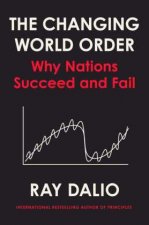
Principles for Dealing with the Changing World Order
506 Kč -

Team Topologies
512 Kč -

Freakonomics
213 Kč -

Misbehaving - The Making of Behavioral Economics
284 Kč -

Indispensable Milton Friedman
692 Kč -
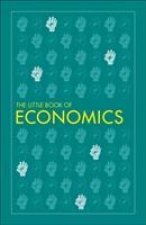
Little Book of Economics
276 Kč -

Why Nations Fail
276 Kč -

Pyramid Principle, The
1108 Kč -

Essential Mathematics for Economic Analysis
1926 Kč -
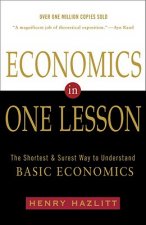
Economics In One Lesson
368 Kč -

Predictably Irrational
389 Kč -

Price of Inequality
259 Kč -

(Mis)Behaviour of Markets
357 Kč -

Debt, 10th Anniversary Edition
647 Kč -

A-Level Economics: Year 1 & 2 Complete Revision & Practice (with Online Edition)
700 Kč -

The Invisible Hand
196 Kč -

Liar's Poker
303 Kč -

Rational Optimist
276 Kč -

Irrational Exuberance
485 Kč -

Art of Statistics
306 Kč -

Scrum - A Pocket Guide - 3rd edition
563 Kč -

Hypomanic Edge
502 Kč -
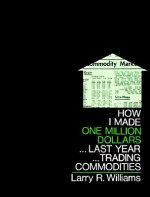
How I Made One Million Dollars Last Year Trading Commodities
979 Kč -
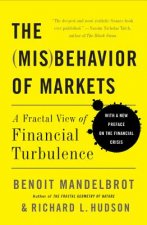
Misbehavior of Markets
584 Kč -

Econometric Analysis, Global Edition
2129 Kč -

Cartoon Introduction to Economics
462 Kč -

Economics: The User's Guide
358 Kč -
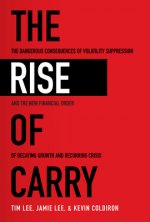
Rise of Carry: The Dangerous Consequences of Volatility Suppression and the New Financial Order of Decaying Growth and Recurring Crisis
644 Kč -

Myth of Capitalism - Monopolies and the Death of Competition
537 Kč -

How Rich Countries Got Rich and Why Poor Countries Stay Poor
410 Kč -

Business Etiquette in Brief
310 Kč -

Intermediate Microeconomics and Its Application
2616 Kč -

Discovery, Capitalism & Distributive Justice
542 Kč -

Are the Rich Necessary?
312 Kč -

Economic Point of View
667 Kč -

Driving Digital Transformation
543 Kč -

Start-Up Nation
254 Kč -
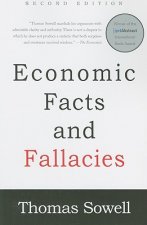
Economic Facts and Fallacies
417 Kč -

Decision Book
447 Kč -
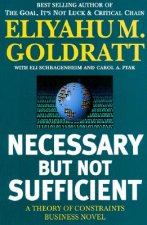
Necessary but Not Sufficient
404 Kč -

Freakonomics
172 Kč -

Economics Book
534 Kč -

Leading at a Higher Level
813 Kč -

Principles of Economics
389 Kč -

Macroeconomics For Dummies
581 Kč -

45 Second Presentation That Will Change Your Life
232 Kč -

Economics of the Public Sector
2059 Kč -

Factfulness
258 Kč -

Currency Wars
399 Kč
Osobní odběr Praha, Brno a 12903 dalších
Copyright ©2008-24 nejlevnejsi-knihy.cz Všechna práva vyhrazenaSoukromíCookies



 Vrácení do měsíce
Vrácení do měsíce 571 999 099 (8-15.30h)
571 999 099 (8-15.30h)